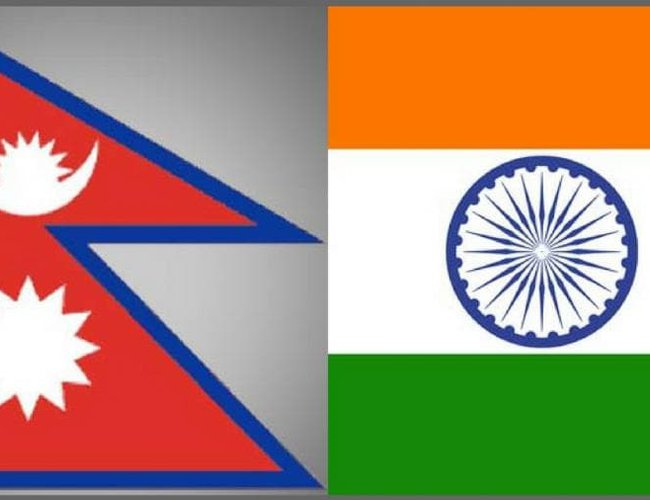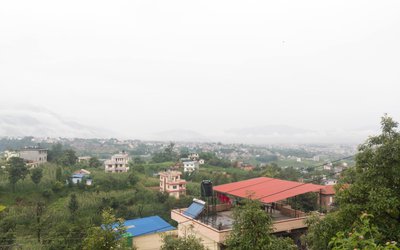
As official establishments in India and Nepal fail to balance out the finer elements of bilateral ties, we are witnessing another round of ‘tussle’. This does not bode well for people on either side, distressed as they are by the Covid-19 pandemic and the lockdowns. On the border issue, the failure of both sides to find common ground through diplomatic talks is worrisome. The immaturity the top level has shown by engaging in ruminations and exchanging distasteful is undesirable. Such immaturity doesn’t help anyone but those who feed on public resources and harm public interests knowingly or unknowingly.
The establishments in India and Nepal should repose faith in strong bilateral relations and sit at the negotiation table lest it gets worse from here. Considering the sensitivity of the matter, no space should be given to it on the streets of Kathmandu or the studios of ailing TV newsrooms in India. Both tendencies should ideally be kept away from this sensitive matter that concerns lives and livelihoods.
Wave of adventurism
If the people-to-people connect has deepened Indo-Nepal relations, there is no reason for this part to be left out despite the wave of adventurism. Next, it is trade terms between the two countries as there are a number of industry players and associations on both sides that are inter-dependent contribute significantly towards shared prosperity. Economic activities and sane dialogue must be facilitated in trying times such as these. The current deadlock can be perilous to the economic self-interests of both countries.
Similarly, in strategic terms, both countries should properly weigh in their interests and fundamentals, including the open border. It would be wrong to bring in China amidst an absolutely focussed bilateral discussion or for the sake of Prime Minister KP Sharma Oli’s comparison of the ‘viruses’. It is a country with a temperament; a lot more about it can be known through lessons in history. Unlike the heavily enchanted and nay-saying policymakers, we, the general people of the two countries, should come out of the spell and accept that it is existential matters that should shape our consciousness. In socio-cultural terms, too, so many conventional and newly manoeuvred schemes of things are at stake.
At this point of time, decision-makers in our part of the world would do well to take into consideration the concept of 'enlightened self-interest' as propounded by Alexis de Tocqueville in his work Democracy in America. They may or not be altruistic—it is a matter of choice. However, when it comes to pursuing enlightened self-interest, spirit and action have to be forward-looking. Of late, it is important to find virtue in enlightened self-interest for ensuring a greater degree of maturity in public discourse.
It is not that all kinds of sentiments should go on the wane, especially the love for the country and the neighbourhood. In the homeland or beyond the border, much can be preserved by simply not making the same mistakes again. It is inter-dependence that beautifully weaves the true fabric of Indo-Nepal relations. For re-imagining them, too, one has to understand that we owe each other much more than what is featured in official communications.
In a world ravaged by Covid-19, political leadership is expected to perform beyond rhetoric. Sadly, even with the pandemic and the near-collapse of economies, the post-truth era has not faced a jolt yet. It is very much in vogue, and it rests on masterful escapist tracts and absurd action plans; herd behaviour gives it traction. One point that possibly remains unnoticed by most of us is that the lockdown has resulted in the state’s excessive authority on citizens. This is certainly not a positive development in times when hope is elusive.
Broadly speaking, if a government is capacity-conscious, it should protect the enlightened self-interest of the state and its citizens. Accordingly, the plan of action should be streamlined. Prime Minister Oli, a powerful leader, must think that the people are in panic mode and that the industry is facing an existential crisis. The boundary dispute with India can be fixed through negotiations; in no way should his focus be diverted from stopping a humanitarian crisis in the country.
There is no reason why his Indian counterpart should have a different priority in India, which is in terrible shape due to the ongoing global crisis and needs the cooperation of its neighbours. Poverty, hunger, mass unemployment and dwindling economic prospects, and not silence, exchanges of odd words and hampering of dialogue, should drive bilateral ties. Extraordinary times need extraordinary measures. Going forward, political leadership in both India and Nepal should prioritise issues that matter to lives and livelihoods.
Economic recovery
Collective enlightened interest should come out of a deep crisis, and we should work towards economic recovery instead of wasting time. A sane voice is one that you can trust amid the clanging of alarm bells. We should all expect that the decision-makers will go along as they should. In the year 2020, it will not serve any meaningful purpose to act as in the troubled phases of the past. This is the best time for Indo-Nepal relations to evolve with greater sensibilities and respect for individual, common and holistic interests.
India and Nepal should talk and work together; nothing else matters at this most devastating time in human civilisation. The two countries can be supportive of each other even as they continue to pursue self-interests. We’ve been home-bound physically, but let’s set ourselves free spiritually and reclaim moderation, normalcy and smoothness in our bilateral ties. Let’s all live peacefully.
Thakur is a policy professional based in New Delhi.
The article was first published on The Kathmandu Post

Atul K. Thakur
Atul K Thakur is a New Delhi-based columnist with keen interest in South Asian affairs, he also works on public policy. The views expressed in the piece are personal. He can be reached on: summertickets@gmail.com
- All Roads Lead North Are Less Travelled
- Mar 28, 2021
- In Conversation: Atul K Thakur and Greta Rana
- Jul 31, 2020
- Getting Federalism Right In Nepal
- Apr 12, 2019
- India, Nepal Take Welcome Small Steps, But The Sector Needs A Giant Leap
- Jan 07, 2019
















